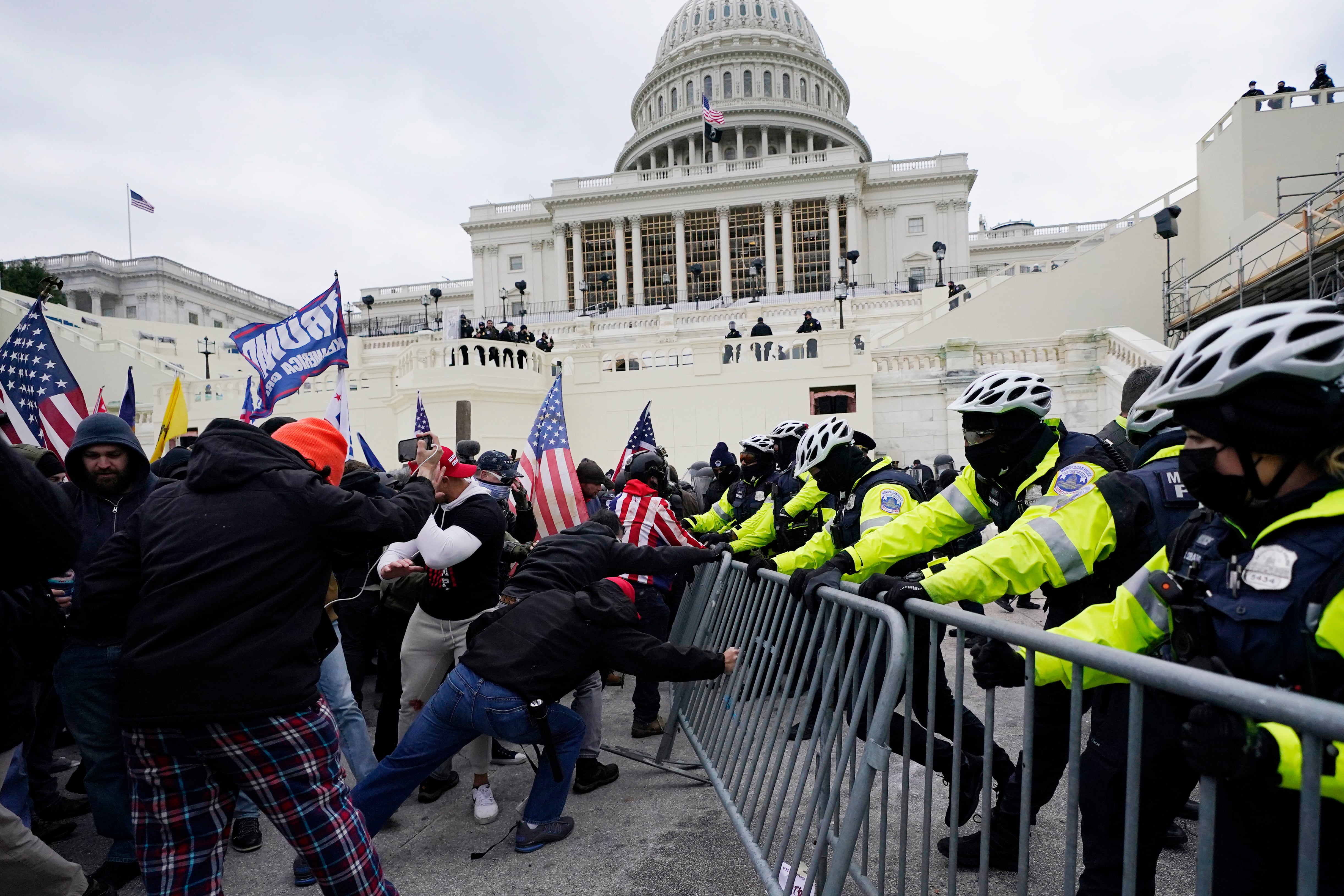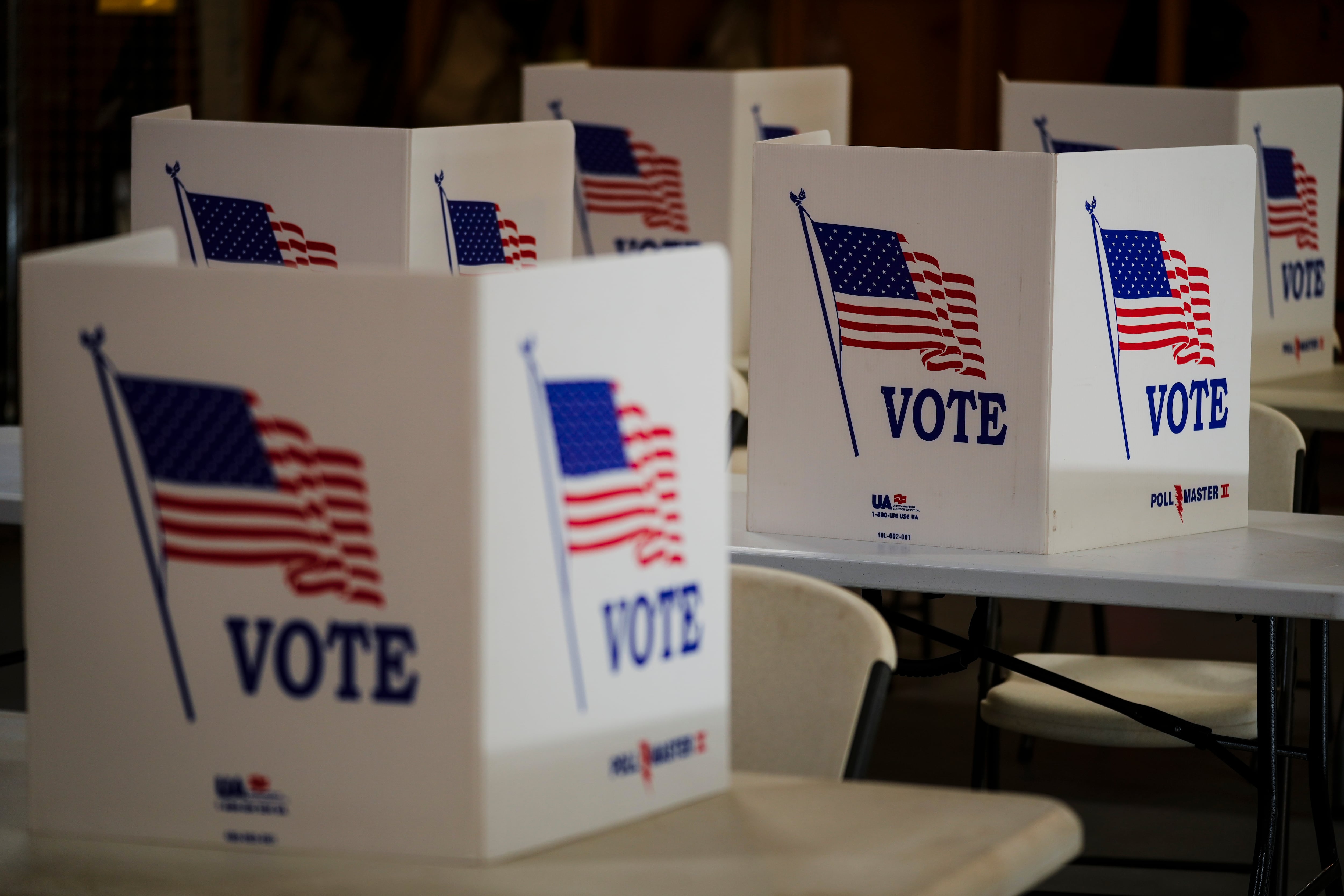False conspiracies about a “rigged” U.S. presidential election spiked on fringe social media platforms throughout October, prompting concern from extremism experts about the potential for violence after Nov. 5.
The Global Project on Hate and Extremism, a nonprofit that tracks extremist activity online, reported Tuesday that chatter of election denialism increased on Telegram, Gab, Communities.win and Fediverse — social media sites that lack moderation and allow users to share extreme and controversial viewpoints. Posts about election denialism, the false belief that elections are unfair and could be “stolen,” increased by 317% on Telegram and 105% on Gab throughout October, the nonprofit said.
The posts are often violent in nature. Some people on the platforms suggested if the election doesn’t go their way, the military should be used to prevent a peaceful transfer of power, while others called for the killing of elected officials and anyone accused of voter fraud. The Proud Boys, a far-right group that has historically recruited veterans, posted violent calls to action on Telegram. The Rhode Island chapter told members to “keep your rifles by your side” in one post viewed by Military Times.
The rhetoric differs from what extremism experts saw in 2020, when election denialism spiked after President Joe Biden was projected as the winner, rather than before the election.
“They are preparing themselves for the election to be stolen in a way they didn’t in 2020 – something we find concerning,” said Wendy Via, co-founder of the Global Project Against Hate and Extremism. “If the election does not go the way the folks on these fringe sites want them to, we’re going to see another very sharp spike after the election, and we’re going to have to double-down on our tracking and monitoring.”
The Department of Homeland Security and Federal Bureau of Investigation released a joint bulletin earlier this month that warned of potential violence from domestic violent extremists before, during and after the election. Extremists who pose the greatest threat are those who believe claims of election fraud or harbor anger toward perceived political adversaries, the bulletin warns.
RELATED
The agencies wrote that extremists would likely target voting locations, ballot drop-boxes, voter registration locations, political rallies, campaign events and the offices of political parties.
In the weeks before the election, some of those warnings have become realities. An Arizona man was accused of shooting at a Democratic National Committee office Wednesday near Phoenix. On Monday, ballot boxes in Portland, Oregon, and Vancouver, Washington, were set on fire, and hundreds of ballots were destroyed.

Despite those incidents, Via and Heidi Beirich, the co-founders of the Global Project Against Hate and Extremism, said Tuesday they were more concerned about violence occurring after the election than in the days leading up to Nov. 5 or on Election Day itself.
Elections officials and law enforcement have had time to prepare for potential violence since the election in 2020, which saw unprecedented levels of threats against election workers, Via and Beirich said.
In addition, they argued that the prosecution of people who participated in the Jan. 6, 2021, attack on the U.S. Capitol could serve as a deterrent. Of the nearly 1,500 people charged or convicted for their involvement in the Capitol breach, 222 had military backgrounds, according to data from the National Consortium for the Study of Terrorism and Responses to Terrorism. About two dozen were associated with the Proud Boys.
Via and Beirich also cited the efforts of the nonprofit We the Veterans as a potential deterrent for violence at polling locations. As of Tuesday, the group had recruited more than 163,000 veterans and their family members to volunteer as poll workers. During a time when misinformation is eroding trust in U.S. elections, the nonprofit believes veterans are the key to quashing skepticism and restoring confidence.
RELATED

Still, Via and Beirich said they are concerned about the potential for violence after Nov. 5. If it’s a close race and takes days to project a winner, emotions will be heightened, Via said. So far, national polls have projected a neck-and-neck race, and election experts do not expect a winner to be announced on Election Day.
On a call with reporters last week, former Pennsylvania Secretary of the Commonwealth Kathy Boockvar said the swing state’s ballots would likely be counted sometime the day after Election Day, but it could take weeks if the race is close enough to trigger a recount.
“There are so many variables that are going to happen between now and the days after the election. Tracking extremist groups, analyzing the data — it’s about being prepared and understanding the potential threat,” Via said. “But don’t let fear and intimidation keep you from exercising your right. People need to be prepared and cautious, but not afraid.”
This story was produced in partnership with Military Veterans in Journalism. Please send tips to [email protected].
Nikki Wentling covers disinformation and extremism for Military Times. She’s reported on veterans and military communities for eight years and has also covered technology, politics, health care and crime. Her work has earned multiple honors from the National Coalition for Homeless Veterans, the Arkansas Associated Press Managing Editors and others.
Read the full article here
